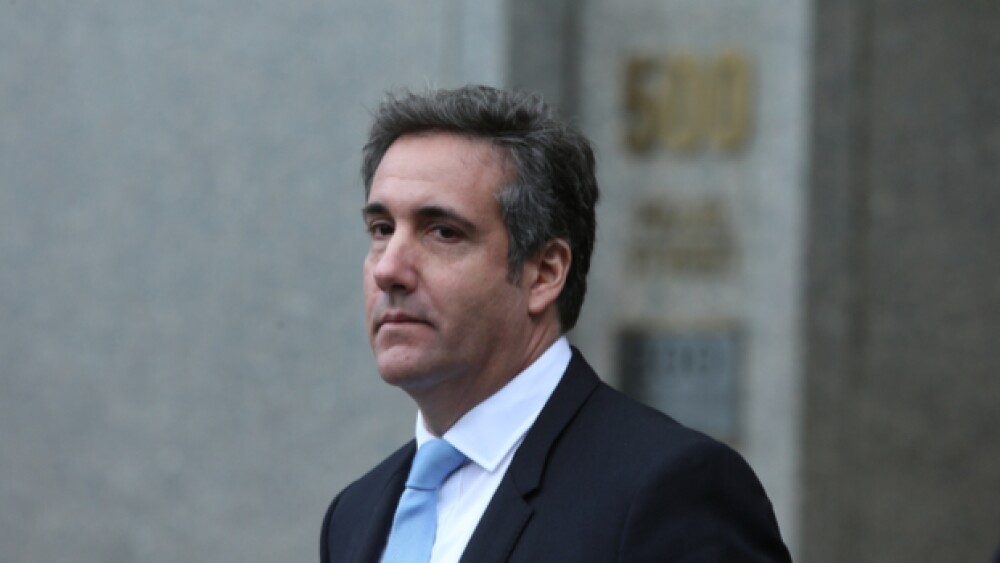With its concerns over drug pricing and potential questions of “pay-to-play” for access to the White House, Congress did not miss the chance to question President Donald Trump’s former attorney about his relationship with Novartis.
Michael Cohen, President Donald Trump’s former personal attorney. Credit: a katz / Shutterstock.com.
With its concerns over drug pricing and potential questions of “pay-to-play” for access to the White House, Congress did not miss the chance to question President Donald Trump’s former attorney about his relationship with Swiss pharma giant Novartis.
During his hours-long testimony before the House Oversight Committee, Cohen’s brief but lucrative relationship with Novartis became a point of discussion. Last year it was revealed that Novartis paid Cohen $1.2 million to serve as a Trump administration consultant for the company. However, during his testimony on Wednesday, Cohen said the company was seeking an unregistered lobbyist who could provide direct access to the president of the United States. Novartis has disputed that characterization. In previous statements, the pharma company said they described the attempt to establish a relationship with Cohen as a way to gain insight into how the administration would address healthcare policy and how that might impact some of the company’s medications covered by federal plans like Medicare.
Novartis came up as a result of questions from Rep. Mark Meadows, a North Carolina Republican, about Cohen’s contacts with foreign entities. Cohen said he had spoken with representatives from Novartis approximately six times about the work he would perform. During his testimony, Cohen said that the Swiss company sent him a contract that used the term lobbying in the language. Cohen said he crossed out the word lobbying and added a note to the contract that he does not lobby or perform government relations works.
Meadows has claimed that Cohen has violated federal lobbying laws and late Wednesday announced on Twitter that he “entered a referral for criminal investigation of Michael Cohen, who violated the Foreign Agents Registration Act by illegally lobbying on behalf of foreign entities without registering.”
In May 2018 it was revealed that Novartis paid Cohen, who was known as Trump’s “fixer,” $1.2 million for consulting services. The company entered into a deal with Cohen in February 2017 for one-year of consulting work – what has largely been viewed as an unsanctioned lobbying deal. In May Novartis said it believed Cohen could advise the company on how the Trump administration could approach healthcare policy matters, including the Affordable Care Act. However, Novartis said that after its initial meeting with Cohen the company determined that the New York attorney would be “unable to provide the services that Novartis had anticipated related to U.S. healthcare policy matters.” Following the revelation of the relationship, Novartis’ top attorney Felix R. Ehrat, the Group General Counsel of Novartis, fell on the sword for the company and resigned.
After the relationship with Novartis was revealed, a report was drafted by Democratic members of the U.S. Senate called report called “White House Access for Sale: Michael Cohen, Novartis and the bid to sell access to the Trump administration.” The report accused Novartis of misleading the public about its relationship with Cohen. According to the Senate report, documents provided to the Senate by Novartis show that Cohen and former Novartis Chief Executive Officer Joe Jimenez “had multiple additional communications.” Those additional communications are beyond what the company initially said about its relationship with Cohen. The Senate report takes a deep look at the relationship between Cohen and the company, specifically his relationship with its former CEO, Joe Jimenez.
Novartis disputed the Senate report. In its statement, Novartis said that there were several email exchanges between Jimenez and Cohen, but that those emails were initiated by Cohen. The company said Cohen was the one who asked Jimenez for ideas on how to lower drug prices, to which Jimenez provided him with a “list of well-known ideas for lowering the cost of pharmaceuticals.”
“As we have already acknowledged, Novartis made a mistake in entering into the contract with Michael Cohen. And in hindsight – and certainly knowing everything we know now – we should have tried to terminate the contract with Mr. Cohen regardless of our views at the time of its legal enforceability,” Novartis said in its statement last year.
After the scandal was revealed, Novartis brought on a new chief ethics officer Klaus Moosmayer. He succeeded Shannon Thyme Klinger, who replaced Ehrat.





